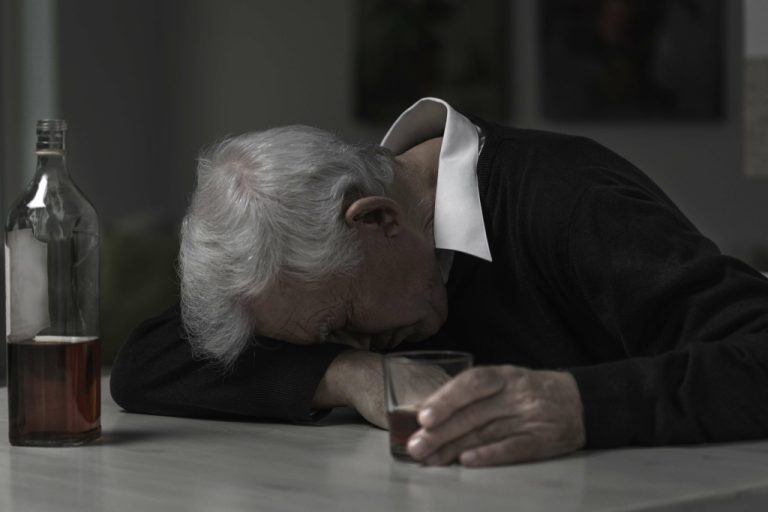Although you won’t have 24/7 access to professional support, you’ll have more of an opportunity to put your addiction coping skills into practice at home. If you seek help from an outpatient service, you’ll receive professional treatment for a portion of the day, or perhaps even most of the day. Millions of readers rely on HelpGuide.org for free, evidence-based resources to understand and navigate mental health challenges. To better help someone with a drug addiction, it’s often necessary to hold them accountable for their actions by establishing limits or boundaries for what is and isn’t acceptable behavior. Without boundaries, your loved one never has to face the consequences of their actions—and you’ll eventually feel burned out from all the attempts to cover up, excuse, or compensate for their behavior. Emphasize that you care for the person and are worried about their well-being.
- You may also be worn down by covering for your loved one at home or work, having to shoulder the responsibilities they neglect, or being unable to devote more time to other family, friends, and interests in your life.
- Factors that can play a role in deciding where to go for drug or alcohol addiction treatment and what kind of program you choose include the reputation of the rehab facility and the type of care you are seeking.
- Other people turn to drugs to change how they feel, to fit in, or to alleviate boredom or dissatisfaction with their lives.
- Of course, what your day looks like will vary based on the rehab center and its approach, your addiction, and your personal circumstances.
Find treatment programs in your state that treat recent onset of serious mental illnesses. Find treatment programs in your state that treat addiction and dependence on opioids. The best ways to help a person who is addicted to drugs or alcohol may seem counterintuitive, especially for people who struggle with codependent relationships. Some of these methods may seem harsh, but they come from a loving approach with the ultimate goal to help the person overcome their addiction and to help all parties heal. If your loved one displays the symptoms of a substance use disorder, your relationship is likely affected by their substance misuse in multiple ways, including emotionally, physically, and financially.
Best for Specific Drug Addictions: Recovery Village
Self-help support groups can decrease the sense of shame and isolation that can lead to relapse. Many, though not all, self-help support groups use the 12-step model first developed by Alcoholics Anonymous. Self-help support groups, such as Narcotics Anonymous, help people who are addicted to drugs. Kaiser Permanente primary care physicians are trained to screen for possible alcohol misuse at every appointment and connect members who need support to addiction medicine specialists. Addiction medicine physicians are specifically trained in a wide range of prevention, evaluation, and treatment methods for helping people with SUD and addiction.
Drug rehab provides the steps and support that addicts need to make a lasting recovery from a range of addictions including addiction to heroin, cocaine, methamphetamine, and prescription medications. Choosing not to pursue outpatient substance abuse treatment presents risks. Without intervention, the continued struggles with addiction can significantly impact various aspects of your life, jeopardizing your physical and mental well-being, relationships, and overall quality of life. In addition to therapy and support groups, the development of coping mechanisms is crucial.
What Accreditations Should I Look for When Selecting a Treatment Center?
Whether your loved one is using every day or every month, it’s the adverse impact their drug abuse has on their life that indicates a problem. It may help to get an independent perspective from someone you trust and who knows you well. You can start by discussing your substance use with your primary care provider. Or ask for a referral to a specialist in drug addiction, such as a licensed alcohol and drug counselor, or a psychiatrist or psychologist.

Medication is typically used in combination with other treatment approaches, like therapy and self-care. For people with addictions to drugs like stimulants or cannabis, no medications are currently available Dedicated to life-long Recovery to assist in treatment, so treatment consists of behavioral therapies. Treatment should be tailored to address each patient’s drug use patterns and drug-related medical, mental, and social problems.
What Types of Drug Rehab Programs Are There?
For those without a lot of income or with inadequate or no insurance, these centers provide detox, treatment programs, and support services. The first step to drug addiction treatment—regardless of setting—is a clinical assessment. During this process, a clinical team can determine whether https://en.forexdata.info/11-gift-ideas-for-the-sober-person-in-your-life/ inpatient or outpatient care is the best step forward. This assessment includes discussion of medical history; type and length of substance use; previous treatment history; current medications, if any; and an evaluation of outside factors, including living situation and job performance.
Whatever the specifics of your drug abuse problem, addiction can shatter your mental and physical health, damage your relationships, and leave you feeling out of control of your own life. After discussion with you, your health care provider may recommend medicine as part of your treatment for opioid addiction. Medicines don’t cure your opioid addiction, but they can help in your recovery. These medicines can reduce your craving for opioids and may help you avoid relapse. Medicine treatment options for opioid addiction may include buprenorphine, methadone, naltrexone, and a combination of buprenorphine and naloxone.
